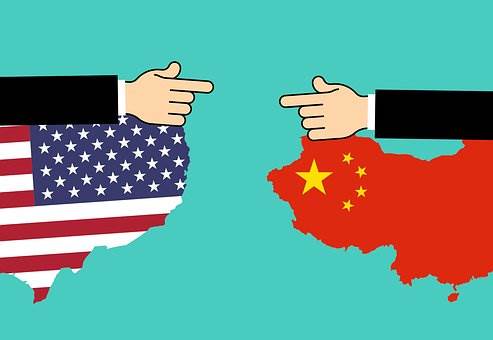 There’s no question that analysts are concerned about the state of the U.S. economy. Even the Federal Reserve is worried, and its members have shown their concern by cutting interest rates for the first time in ten years, in what the Fed called a midcycle adjustment (though many analysts posit that it may be the first step towards an easier money policy). To complicate matters, last week’s inverted yield curve on the U.S. Treasury market signaled an impending recession and sparked a selloff on Wall Street that reverberated worldwide.
There’s no question that analysts are concerned about the state of the U.S. economy. Even the Federal Reserve is worried, and its members have shown their concern by cutting interest rates for the first time in ten years, in what the Fed called a midcycle adjustment (though many analysts posit that it may be the first step towards an easier money policy). To complicate matters, last week’s inverted yield curve on the U.S. Treasury market signaled an impending recession and sparked a selloff on Wall Street that reverberated worldwide.
Bank of America-Merrill Lynch’s Stephen Suttmeier has said that despite the recent steep losses on Wall Street, the bottom won’t be reached until the panic intensifies and the S&P 500 falls another 5 percent. Suttmeier has predicted that it’ll take weeks for stocks to find their bottom. The trade war has reduced the S&P 500’s market value by as much as 6.8 percent since reaching a peak on July 26.
And yet, despite analyst concerns and recent stock selloffs, U.S. President Donald Trump said on Sunday that he does not expect a recession. “We’re doing tremendously well,” Trump told reporters. “Our consumers are rich. I gave a tremendous tax cut and they’re loaded up with money.” White House economic adviser Larry Kudlow made similar comments, claiming that “there is no recession in sight. Consumers are working. Their wages are rising. They are spending and they are saving.”
White House trade adviser Peter Navarro reiterated the same optimism, telling ABC’s “This Week” that “we have the strongest economy in the world and money is coming here for our stock market.”
According to commentary by CNBC, the comments out of Washington over the weekend were meant to counteract claims by Democratic presidential candidates who cited Trump’s erratic economic and political policies for the increased market volatility in recent months. President Trump remains steadfast in his party line that the trade disputes with China have not hurt the U.S. economy at all, while Democratic candidates (and many market analysts) have pinpointed specific weaknesses in the U.S. economy that have stemmed directly from the trade war.
Analysts are now waiting for Monday’s decision as to whether the U.S. will allow China’s contentious tech giant Huawei to purchase supplies from American companies. President Trump has said that he’s not ready for a trade deal with China, and the inability to come to a deal regarding Huawei will likely escalate the trade deal rather than serve to calm it.
